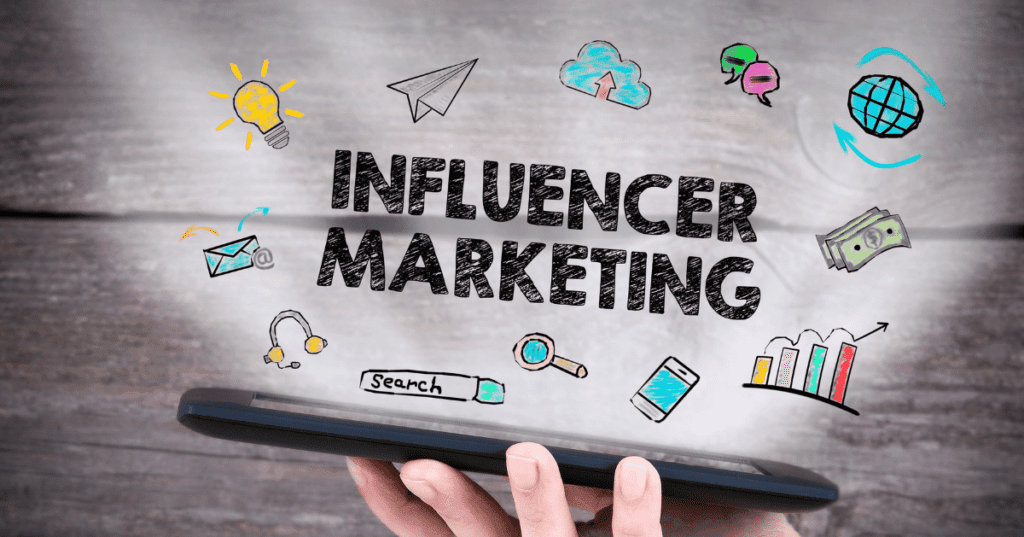In today’s digital age, the very definition of celebrity has undergone a seismic shift. Platforms like YouTube, Instagram, and TikTok have birthed a new breed of celebrities, characterized not just by their fame but by their genuine connection with fans and the niche audiences they cater to. This digital revolution in the celebrity landscape has ushered in fresh advertising paradigms, from diverse content formats to real-time audience feedback.
Tracing back, the roots of influencer marketing are deep-seated in Hollywood’s glamour and television’s broad reach. Yet, the ubiquity of the internet and the explosion of social media democratized influence, allowing even the everyday individual to command significant followings. As this industry matured, the spotlight shone on micro-influencers, with their niche appeal and high engagement.
Not stopping at real-life personas, we now witness the intriguing ascent of virtual and AI-driven influencers, blurring the lines between reality and the digital realm. Dive with us into this fascinating evolution and understand the nuances of modern-day influencer marketing.
What Exactly Is Influencer Marketing?
Influencer marketing is a type of advertising that focuses on finding, interacting with, and utilizing people who have sway over potential clients. Rather than marketing directly to a large group of consumers, an organization might inspire or compensate influencers to get the word out on their behalf. Here are some key points to understand about influencer marketing:
Types of Influencers: Influencers can range from celebrities with millions of followers to bloggers or content creators with a more modest but dedicated following. They can also include thought leaders or industry experts.
Platforms: While Instagram, YouTube, and TikTok are often the first platforms that come to mind when discussing influencer marketing, influencers can exist on virtually any platform, including Twitter, Facebook, Snapchat, Pinterest, and even venues like LinkedIn or niche forums and websites.
Authenticity: The perceived genuineness is one of the primary factors that makes influencer marketing successful. If an influencer’s followers trust them, they’re more likely to trust a product or service they promote. However, this also means that influencers must be careful about promoting only products they genuinely believe in.
Sponsored Content: Often, Influencers will be compensated or given complimentary goods or services in return for their promotion. When this happens, it’s essential (and, in many places, legally required) for influencers to disclose that the content is sponsored.
Benefits for Brands: Brands can benefit from influencer marketing by gaining access to an engaged audience, boosting brand awareness, driving sales, and obtaining content they can repurpose.
Micro vs. Macro Influencers: Not all influencers have massive followings. Micro-influencers, who have fewer followers (often in the thousands to tens of thousands range), can sometimes be more effective for specific campaigns because of their niche audiences and higher engagement rates.
Relationship Building: The most successful influencer marketing campaigns often come from genuine relationships between brands and influencers, where both parties align in values and messaging.
Metrics & ROI: It’s crucial to evaluate the return on investment (ROI) of influencer initiatives, just like with all other types of marketing. This can be done by tracking metrics like engagement, conversion, click-through, and sales.
Evolving Landscape: The world of influencer marketing is continually evolving. With shifts in platform algorithms, emerging platforms, changes in audience behaviors, and tight regulations around sponsored content, marketers must stay up-to-date with the latest trends and best practices.
How Does Influencer Marketing Differ From Traditional Advertising?
Influencer marketing thrives on social media platforms, allowing brands to convey their message through individuals who have cultivated trust with their audience, often leading to perceived authenticity and credibility. In contrast, traditional advertising utilizes platforms like TV, radio, and print, delivering messages in a polished and scripted manner, potentially leading to natural skepticism.
While conventional ads reach broader audiences and can be costlier with a finite lifespan, influencer marketing is highly targeted, flexible, and offers detailed digital analytics. Moreover, influencer content might remain accessible indefinitely on platforms like YouTube, whereas traditional advertising has set durations. However, influencer marketing costs can vary significantly based on the influencer’s prominence.
How Do Influencers Build Brand Credibility?
Influencers build brand credibility primarily through authenticity, engagement, and strategic collaborations. Authenticity involves being genuine and transparent, ensuring followers resonate with shared experiences. Regular posting of quality content that’s educational or entertaining, combined with actively responding to followers, solidifies the influencer’s presence and trustworthiness.
Clear disclosures about paid partnerships and selective collaborations with aligned brands further enhance credibility. Additionally, influencers should remain updated on niche trends, engage in professional development, and promptly address controversies to maintain their reputation. Diversifying across platforms and consistently demonstrating ethical behavior also strengthens their influence.
How Do You Maintain Authenticity in Influencer Campaigns?
Pick an influencer who likes your product and shares your brand’s values. Work with them long-term instead of just once. Let them be creative in their posts, but give some guidelines. Instead of just selling, they should only talk about products they like and tell a story. Always say when a post is sponsored, like using #ad. Don’t let them promote too many things simultaneously, and always check how their audience responds. Stay updated on ad rules.
How Can Influencer Marketing Enhance SEO and PPC Strategies?
Influencer marketing can significantly boost SEO and PPC strategies. By collaborating with influencers, brands can amplify content, enhance their site’s backlink profile, and foster trust with users, leading to increased engagement and better user behavior signals. This collaboration can stimulate more branded searches, providing insights into the target audience’s language and interests and informing keyword research and content strategy.
On the social media front, popular content can indirectly benefit SEO through increased mentions and links while extending the reach of paid ads. Furthermore, influencers’ unique platforms can diversify backlink profiles and introduce new long-tail keywords for better organic ranking. At the same time, their expertise can be leveraged to refine PPC ad messaging and targeting.
Conclusion
Influencer marketing represents a dynamic paradigm shift in the digital advertising landscape. Emerging from the foundational principles of traditional celebrity endorsement, it has evolved with the rise of social media platforms, emphasizing authenticity, engagement, and niche appeal. As influencer marketing taps into the trust influencers have cultivated with their audience, it offers brands a means to connect with targeted audiences, provides measurable metrics, and enhances digital strategies like SEO and PPC.
As brands navigate this realm, they must prioritize genuine partnerships and remain updated on best practices to maximize ROI and foster meaningful connections with their audience.





